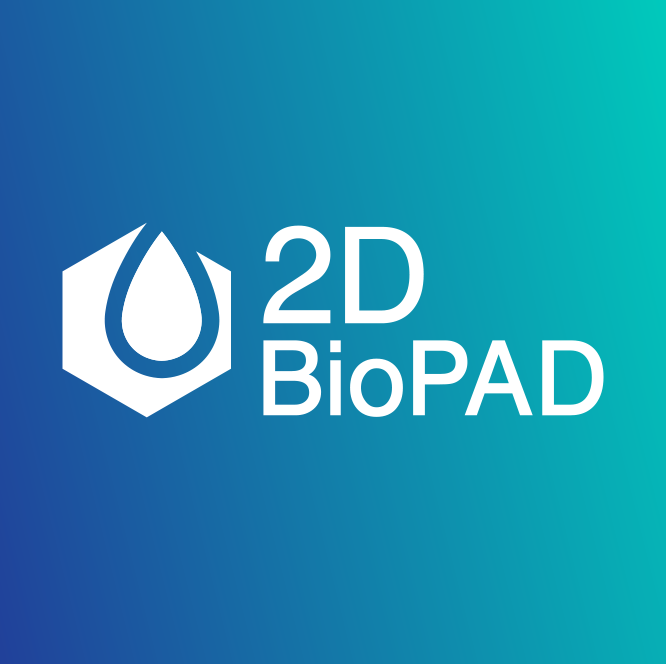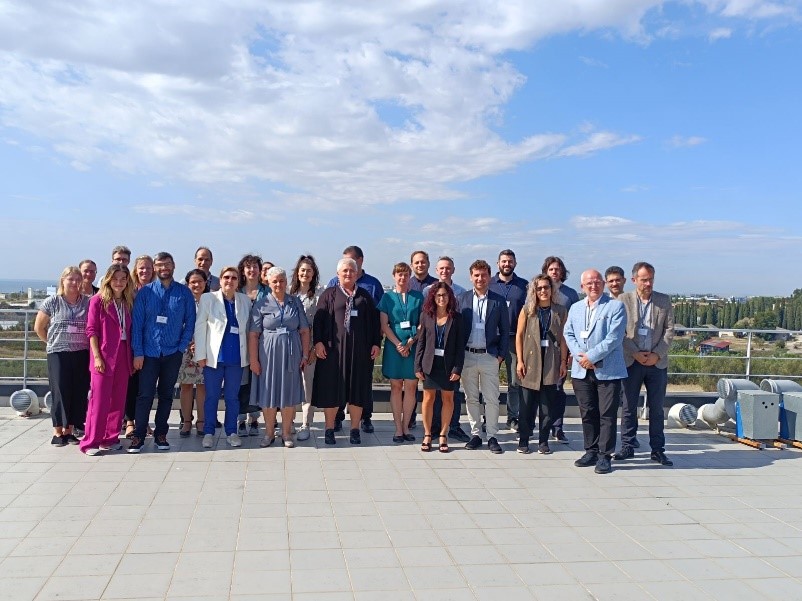CATRIN is coordinating a Horizon project to develop an innovative system for early and simple detection of Alzheimer’s disease
 A team of dedicated scientists and other professionals from the private sector is pioneering the creation of a fast, reliable, cost-effective, and digitally supported system designed for the early detection of Alzheimer’s disease. This groundbreaking endeavour is funded by Horizon Europe under the name 2D-BioPAD with a substantial budget of 6 million EUR allocated for four years The consortium, which recently launched the project in Greece, AUTH in Thessaloniki, involves eleven partners from eight different countries led by the Czech Advanced Technology and Research Institute (CATRIN) at Palacký University Olomouc. CATRIN stands as the sole representative from the Czech Republic in this ambitious effort.
A team of dedicated scientists and other professionals from the private sector is pioneering the creation of a fast, reliable, cost-effective, and digitally supported system designed for the early detection of Alzheimer’s disease. This groundbreaking endeavour is funded by Horizon Europe under the name 2D-BioPAD with a substantial budget of 6 million EUR allocated for four years The consortium, which recently launched the project in Greece, AUTH in Thessaloniki, involves eleven partners from eight different countries led by the Czech Advanced Technology and Research Institute (CATRIN) at Palacký University Olomouc. CATRIN stands as the sole representative from the Czech Republic in this ambitious effort.
“We will use our extensive experience with advanced 2D materials, such as graphene and its derivatives, which could contribute to increasing the sensitivity and efficiency of the sensor. The aim is to detect up to five blood biomarkers for Alzheimer’s disease (AD) at the same time. To do this, a user-friendly mobile application will be available to provide health professionals with real-time results. We also envisage using artificial intelligence (AI) to optimize the system,” said Aristeidis Bakandritsos from CATRIN, the project’s coordinator.
According to him, the development of the device responds to the current demand for Point-of-Care (PoC) analysers, which allow a very quick examination of patients directly in healthcare facilities. The functionality of the system will be verified by two clinical pilot studies, which will take place in three European clinical centres. The consortium involves universities, research institutions, medical facilities as well as companies from Denmark, Finland, France, Germany, Greece, Ireland and Spain. As one of the key members of the Graphene Flagship initiative, 2D-BioPAD is part of a large network of academic and industrial bodies that contribute to strengthening Europe’s strategic autonomy in graphene-based technologies and other 2D materials.

The ceremonial opening of the project was hosted by the prestigious Centre for Interdisciplinary Research and Innovation (CIRI) of the Aristotle University of Thessaloniki. This meeting brought together all partners of the project to discuss their roles, responsibilities and ambitions for the successful accomplishment of the set objectives. The consortium includes the Catalan Institute of Science and Nanotechnology (ICN2), with which, alongside other partners, CATRIN’s researchers are developing a biosensor to monitor the effectiveness of treating neuroblastoma—childhood cancer, thanks to another international project.
Alzheimer’s disease is a chronic neurodegenerative disease of the brain that mainly affects the elderly, but can also occur in younger individuals. It is a serious disease that fundamentally affects the life of the patient and their family, and it is a major health and social problem in Europe and worldwide. Therefore, extensive research and efforts are being made to improve its diagnosis and treatment, also at the level of international cooperation, in order to minimise its impact on society.
Project website: https://www.2d-biopad.eu
The list of the partners:
- Palacký University in Olomouc – CATRIN
- Q-PLAN INTERNATIONAL
- Institut Català de Nanociència i Nanotecnologia (ICN2)
- Grapheal
- ΚΕΔΕΚ – Κέντρο Διεπιστημονικής Έρευνας και Καινοτομίας ΑΠΘ
- NOVAPTECH
- University of Eastern Finland
- Alzheimer Hellas (Greek Association of Alzheimer’s Disease and Related Disorders)
- Evnia
- Central Institute of Mental Health
- National University of Ireland – CeADAR Ireland


